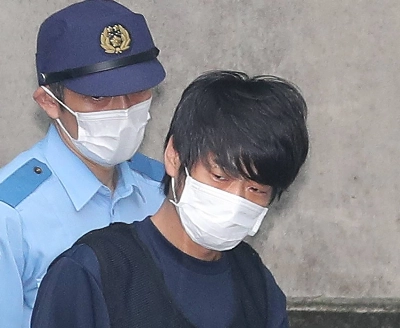Representatives of a nonpartisan mission that returned from a trip to North Korea on Friday urged Prime Minister Keizo Obuchi to work toward a quick resumption of normalization talks with the Stalinist country. Former Prime Minister Tomiichi Murayama, who headed the delegation, and two other representatives made the appeal as they reported to Obuchi on their trip and agreement with the Korean Workers' Party, the ruling party of North Korea. In concluding their meeting earlier in the day in Pyongyang, Murayama and Kim Yong Sun, secretary of the Korean Workers' Party, signed a joint statement calling for a quick resumption of normalization talks between the two nations. Welcoming the delegation's efforts, Obuchi said his government will carefully examine the joint statement and consider how to proceed. "I appreciate the delegation's efforts to create an environment to normalize ties between the two nations," Obuchi told reporters at the Prime Minister's Official Residence after meeting with Murayama and two other representatives. "When Foreign Minister Yohei Kono comes back from Seattle on Sunday, we will discuss the issue to handle it properly," Obuchi said. Chief Cabinet Secretary Mikio Aoki also said that the government would welcome an opportunity for full-scale dialogue between Japan and North Korea. Murayama stressed that the delegation's trip to Pyongyang accomplished its mission. "The delegation's purpose was to create an environment where the governments (of Japan and North Korea) can smoothly hold talks toward normalizing their diplomatic relations," Murayama told a news conference. Murayama said that the North Korean side agreed with Murayama's offer to hold the first intergovernmental meeting within this year, involving the Red Cross societies of the two nations. No schedule of such talks was released. "We agreed to resume talks (for normalizing diplomatic ties) without any preconditions," said Hiromu Nonaka of the Liberal Democratic Party, who has vigorously advocated improvement of Tokyo-Pyongyang relations. Meanwhile, Murayama maintained that the delegation did not fail to address various "problems" between the two nations -- such as kidnapping allegations against Pyongyang; the possibility of visits to Japan by Japanese women married to North Korean men; and concerns about Pyongyang's ballistic missiles and spy vessels. "We must make further appeals (to Pyongyang) to actively search for missing Japanese people," said Murayama, adding that North Korean officials agreed to continue searches for the Japanese suspected to be in North Korea, on condition that the two sides use the term "missing Japanese," not "kidnapped Japanese." The Japanese government believes at least 10 Japanese were kidnapped by North Korean agents -- mostly in the late 1970s -- and have been taken to North Korea. Last year, the Red Cross society of North Korea announced that no missing Japanese were found in their search. "It is a step forward because they at least agreed to continue the search," Murayama said. Murayama said the Japanese and North Korean sides did not discuss national security issues because they shared the view that such issues should be handled under a multinational framework.
1 hour ago

















With your current subscription plan you can comment on stories. However, before writing your first comment, please create a display name in the Profile section of your subscriber account page.